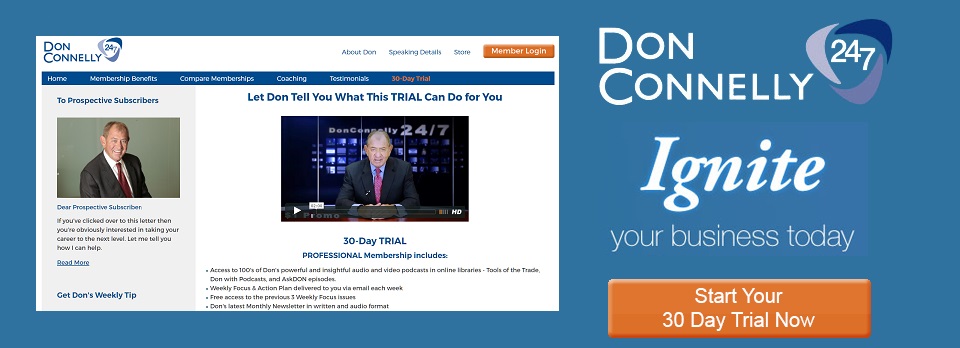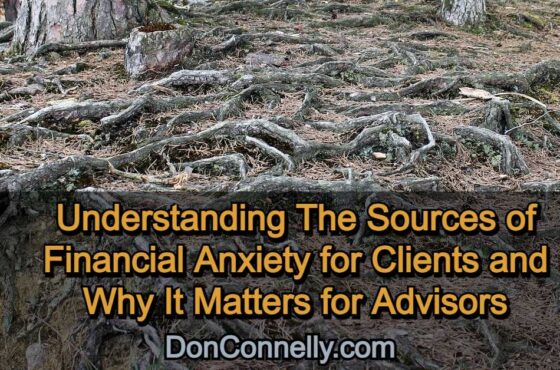What Not to Do in The First Client Meeting
 It takes hard work and perseverance to set up a first appointment with a potential client. Don’t waste this precious opportunity by approaching the meeting in the wrong way – because it’s unlikely you’ll get a second chance.
It takes hard work and perseverance to set up a first appointment with a potential client. Don’t waste this precious opportunity by approaching the meeting in the wrong way – because it’s unlikely you’ll get a second chance.
There’s no ‘first meeting rule book’, however there are some things to avoid if you want to move things forward. Here are a few.
1. Don’t be impersonal
Clients want to do business with the real you, not the Mr. or Ms. Financial Advisor you. They are not looking for additional information. They are looking for someone they can trust. That’s why, despite technology, a recent Investor Survey revealed that clients still prefer face-to-face interaction with advisors over any other method.
Choosing a financial advisor is an incredibly important decision so prospects need to ‘sound you out’. By meeting you in person prospects are hoping to get a sense of who you really are and whether they feel comfortable enough to trust you to manage their money.
What prospects are interested in is you and your personality – and whether you would be a good fit for them on what would be a long-term investment journey. So, create empathy and rapport by telling them your ‘who I am’ story and don’t be afraid to show vulnerability.
If you’ve made mistakes, own them – and show people your human side.
2. Don’t lack enthusiasm
People warm to positive people, so aim to have a positive attitude. Use body language to express your confidence and enthusiasm. Smile. Offer a firm handshake and maintain good eye contact. Be proud of who you are. Remember – you are there to change their lives for the better.
3. Don’t Succumb to the ‘curse of knowledge’
In your first meeting with a potential client, don’t focus on the numbers or go into intricate detail about financial products. See things from their point of view.
Understand their goals and nail down their worries. Stay away from ‘advisor-speak’ and instead put all your effort into starting a positive relationship.
Don’t talk about what you care about. Talk about what they care about.
Remember – people don’t buy what they don’t understand. You will obviously know more about investment vehicles and financial markets than a prospect, but it’s counter-productive to bombard them with your accumulated knowledge. Far from being impressed, prospects are more likely to walk away if they are confused and overwhelmed with information.
4. Don’t be an ineffective listener
Hearing is passive. Listening is active. Instead of waiting for your turn to talk, really listen to your prospects. Ask open-ended questions to get them to open up about themselves and give prospective clients the impression that you’re truly interested in who they are. If you don’t listen intently to prospects they will feel you care more about making money than about them and you will lose their interest.
5. Don’t Overpromise
Overpromising is the biggest mistake you can make when it comes to managing client expectations and it’s essential to start off on the right foot when establishing your prospect’s goals and expectations.
If you don’t ask the right questions you won’t gain a clear understanding of their unconscious beliefs and expectations. Pay close attention to why they may have severed relationships with previous financial advisors. Is there something you should be aware of? Perhaps they weren’t thrilled with the service?
Once you understand what the client’s perspective is, set out clearly what they can expect from you. Remind them that investment markets are variable by nature, and that they are out of your control. However, re-iterate that while the journey may be a little bumpy – you can offer them a prudent long-term strategy that will ultimately enable them to reach their financial goals.
The first client meeting is the first step to a strong relationship – don’t blow it.
Meeting with a new client for the first time can be a great experience and lead to a longstanding relationship. That’s so long as you see the first encounter as a chance to establish a rapport, rather than an opportunity to sell.
It’s your opportunity to demonstrate your credentials, but most of all it’s your chance to swap ‘who I am’ stories and get important background information. Exude positivity and listen carefully so that by the end of the meeting people will like you, trust you and feel you are exactly the right person to oversee their finances. Remember, when mom and dad leave your office, they are not going to get in the car and talk about downside capture. Instead, they are going to ask one question of each other. “What do you think?”




